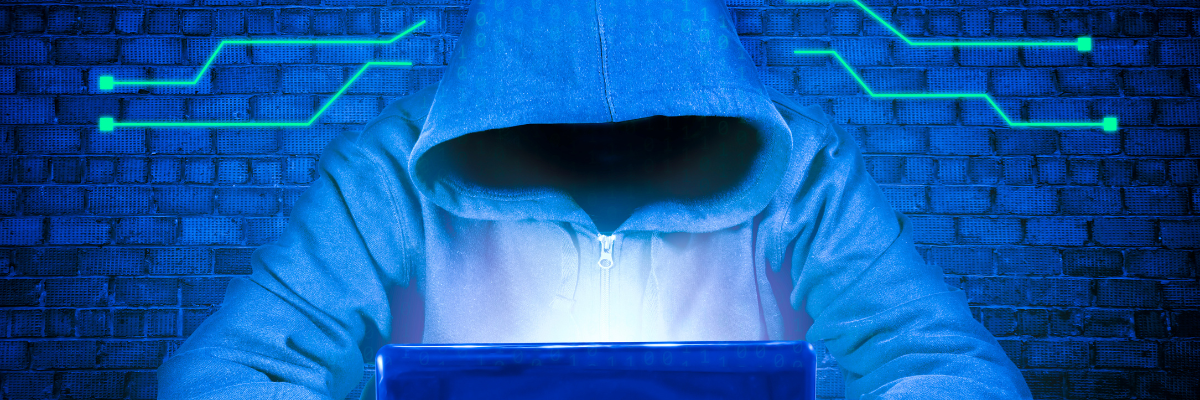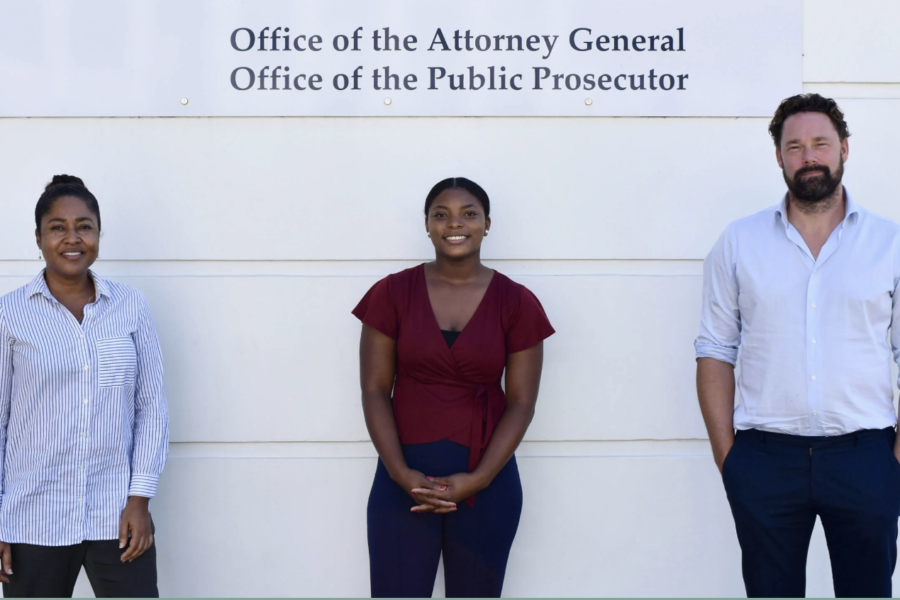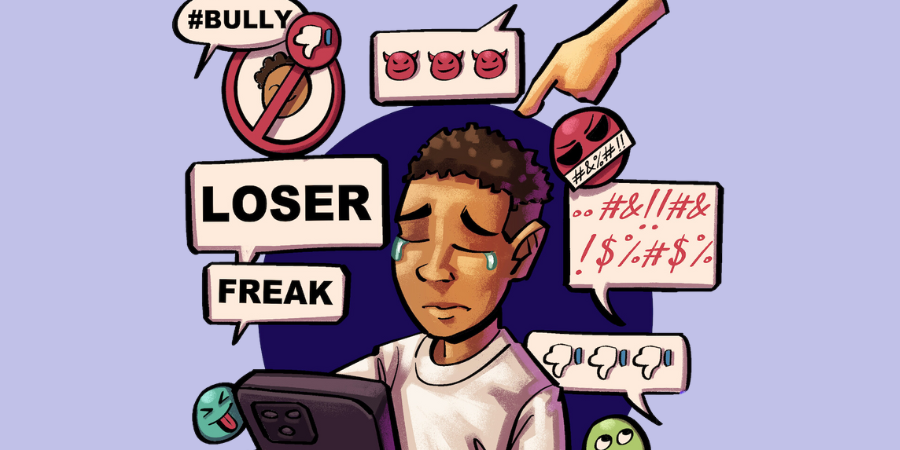“Cyberbullying, grooming, child pornography, revenge porn, are the types of crimes we see on St. Maarten when discussing digital crimes involving minors.”
Prosecutor Gustave Peyma Sholeh and Legal Advisors Maruskha Kortram and Junice Arion handle cases related to the ‘youth and morality’ portfolio of the Prosecutor’s Office St. Maarten. This portfolio primarily handles crimes committed by young offenders and sexual crimes. As Sholeh explains, this also applies to digital crimes that are sexual in nature and/or involve young people.
What is considered a digital (or cyber) crime? What types of digital crimes have been reported on St. Maarten?
The crimes that can fall within the definition of a ‘cyber crime’ are extensive. Any crime via a digital platform or device can be considered a cybercrime. The most familiar to readers might be ‘phishing scams’, when criminals use scam emails, text messages or phone calls to trick their victims into providing personal information or sending money.
When discussing cyber crimes involving minors on St. Maarten, we narrow it down to crimes such as severe cyberbullying, grooming of a minor, sharing child pornography, posting revenge porn, etc.
Teachers and parents have brought up the topic of cyberbullying and its increased prevalence; how does the Prosecutor’s Office handle this?
Bullying is not considered a criminal act, but threatening someone or insulting someone (causing mental anguish or destroying someone’s character) is. With cyberbullying, children bully each other via various social media platforms. In most cases, these incidents are handled by the schools. If they escalate, the police can become involved and mediate between parties.
When cyberbullying occurs, it is often between two minors. The Prosecutor’s Office only intervenes in cases involving minors as a last resort. This is because we do not want to charge a minor with a crime, which can result in severe consequences for their future. If all other preventative measures do not work, the Prosecutor’s Office will become involved. The case is reported to us more quickly if the cyberbullying also includes the sharing of child pornography or if an adult is involved.
You mention grooming and child pornography as some of the cyber crimes you’ve seen on St. Maarten. Can you explain what these crimes entail?
Grooming is when an adult engages in sexual conversation (via a digital platform or in person) with a minor under the age of 16 and plans to meet at a specific location and time with the intent to commit sexual acts (Description according to law article 2: 207). Sexual images or videos that include persons under 18 years of age are classified as child pornography.
In most cases, we have discovered evidence of grooming or child pornography as part of an ongoing investigation. For example, an adult is suspected of sexually abusing a minor, and we find child pornography on their phone.
If a 14-year-old sends another 14-year-old naked photos, this is also considered child pornography and can be prosecuted. We have had cases where minors share videos of their peers engaging in sexual acts, also known as revenge porn.
How can someone report a digital crime? What is important for them to consider?
Reporting is done in the same way that other crimes are reported, through the Police Department (KPSM). If a minor is involved, it is often processed by the ‘Youth and Morals’ Department within KPSM. They do the initial investigation and then send their report to us. A prosecutor is assigned to the case, and we review the report. If we find that the crime needs to be prosecuted, we investigate the case further together with KPSM.
When reporting a digital crime, we recommend taking screenshots of any evidence relevant to the complaint. Even better is to bring the device on which the crime occurred or is occurring to the Police Department when you make your report.
How can the public report a crime or provide information on a suspected crime?
The Police Department can be contacted via phone at 1-721-542-2222 ext. 203/204/205, the anonymous tip line 9300 or people with information can also send a private message via our Facebook Page – Police Force of Sint Maarten – Korps Politie St. Maarten or website https://www.policesxm.sx. To report suspected child abuse, people can also contact the Sint Maarten Court of Guardianship: +1721 542-4110.
What are the challenges in prosecuting a digital crime?
Sometimes, it is hard to find the person’s identity behind the cybercrime or to gather sufficient evidence. For example, we had a problematic grooming case in which someone was portraying himself as a minor on Facebook. We had to send an international request to Facebook in the United States to get clarity on the profile’s identity. This was a very long procedure.
People can also fake messages, so ideally, we have the evidence firsthand on the device itself of any criminal behaviour. However, features like ‘disappearing messages’ on Facebook or Snapchat make it hard to obtain this evidence after it has happened.
What could be improved to help law enforcement tackle or prosecute digital crimes involving children?
Under our current law, when someone is accused of grooming, they cannot be directly arrested after being charged (unlike with crimes such as rape or murder). They can only be arrested once the court finds them guilty of this crime and sentences them. This means that those accused of grooming a minor can flee the island before their court date. In the Netherlands, grooming is seen as an offence for which you can be arrested once you are charged with this crime.
In addition, we have a new (draft) procedural criminal law policy to improve particular victims’ and defendants’ rights under St. Maarten Law. Our current criminal law policy is from 1996 and is outdated. The newly drafted procedural criminal law improves the criminal process in many ways, including giving more rights to victims and giving minors access to a lawyer. However, the draft law has yet to be approved by Parliament despite being submitted many years ago.
How would you advise the community to protect their children from digital crimes?
Awareness programs in schools and preventative measures at home are a start. But most importantly, parents and caregivers should converse with their children about safely navigating their devices and the internet.
Talk to your children about online dangers and how adults can try to take advantage of them. Share how predators might try to gain sensitive information or images. Also, encourage children to talk to their parents or another trusted adult if they are experiencing cyberbullying or are suspicious of someone who has approached them online. As a parent, you also should know your child, and if you suspect that something is off, check their devices – to ensure they are safe.
The Prosecutor’s Office
The Prosecutor’s Office’s primary function is to defend the public against people who commit crimes against citizens. They represent the victims or the public in court. The core tasks of the Prosecution Service can be divided into three categories: 1. Lead the investigation of criminal acts, 2. Prosecute criminal acts, 3. Oversee implementation and execution of criminal sentences. The Public Prosecutor’s Office also provides victim support.






